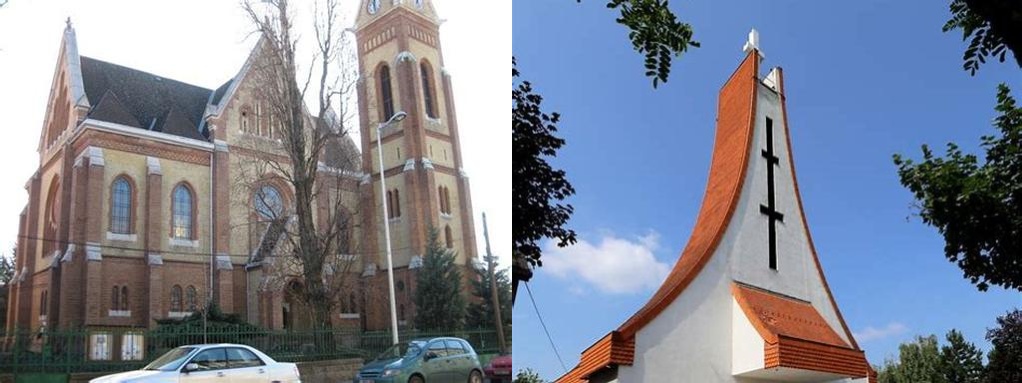
Kőbányai Református templom is proof that history and tranquility can coexist even in the midst of Budapest’s hustle. Set in the district of Kőbánya—which, quite literally, means “stone quarry”—this church hides layers of stories behind its distinctive façade. Kőbánya itself is a neighborhood best known for industry and vibrant working-class traditions, but just a short tram ride away from the clamor, the Kőbánya Reformed Church offers a fascinating counterpoint: peace, artistry, and an inspiring sense of community that’s been years in the making.
Built between 1911 and 1912 and designed by the noted Hungarian architect Aladár Árkay, the church has an almost humble kind of grandeur. It stands out with its red-brick construction, steep tiled roof, and sturdy yet graceful proportions. Árkay was a key figure in early 20th-century Hungarian architecture—always attentive to blending functionality with local motifs. Here, he avoided ornate excess in favor of clean lines and earthy materials, grounding the church in its urban landscape. The result is a building that feels both rooted and welcoming, not overbearing, but quietly confident.
Step inside and you’ll see that the interior makes a statement all its own. The light pours in from slender, arching windows, dancing across original pews and illuminating subtle decorative accents. There’s a sense that this is more than just a place for sermons—it’s a space for reflection. Don’t miss the pulpit with its elegantly carved wood, or the gallery above, where musicians sometimes bring the church alive with organ music. Out of respect for the Reformed faith’s preference for simplicity, you won’t find ornate murals or gilded statues here. Instead, the architecture itself does the talking, inviting visitors to look up, breathe deeply, and just be.
If you’re lucky enough to visit when the congregation is gathering, you’ll feel the real warmth of Kőbánya. Services are still held regularly in Hungarian, with hymns echoing in the air and locals of all ages filling the benches. There’s a lived-in feel to everything—this isn’t a museum but a vital community hub, as alive today as it was when first consecrated. Ask around, and you might hear anecdotes about past ministers, especially the legendary Ferenc Varga, who shepherded his flock here for decades, or about wartime hardships when the church doubled as a shelter.
But even when it’s quiet, there’s magic in the stillness. The churchyard offers a sliver of green—a handful of shade trees and benches where neighbors might exchange news or simply watch the world drift by. Don’t rush through; the slower you move, the more details emerge: worn footsteps on stone thresholds, hand-crafted hinges on heavy wooden doors, the gentle patina of age.
Beyond its spiritual role, Kőbányai Református templom stands as a reminder of Budapest’s ability to blend history and modern life. While tourists flock to the city’s more famous sites—the Parliament or the Castle district—here is a place where you can pause, away from the crowds, and get a glimpse of the rhythm of everyday Budapest. Stroll the surrounding streets to discover a different side of the city, with its traditional bakeries, garden plots, and friendly faces.
In summary, this church is much more than brick and mortar; it’s a layered narrative of faith, community, and architectural grace, quietly inviting anyone—pilgrim or passerby—to step inside and listen. If you’re seeking an oasis in Budapest, with a story carved into every beam and bench, the Kőbányai Református templom deserves a thoughtful visit.





